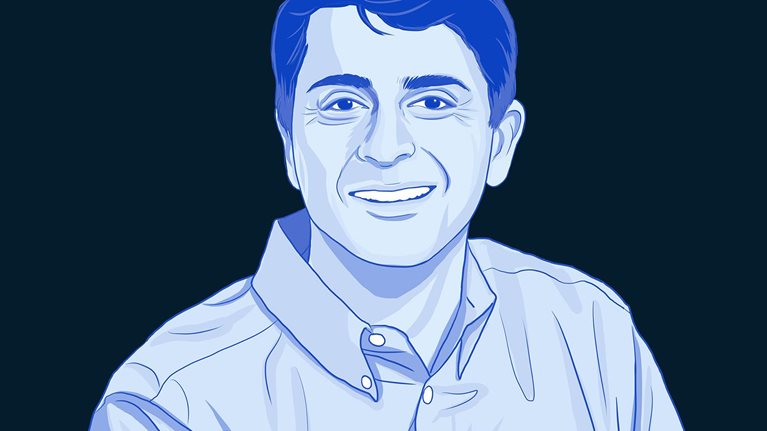The past two years have elevated a range of issues—sustainability, diversity, mental health, and well-being—from ancillary to top priorities for many around the world. This shift has changed the nature of impact investing. Giant Ventures cofounder Tommy Stadlen and Calm cofounder and co-CEO Michael Acton Smith1 spoke with McKinsey’s Philipp Hillenbrand about the trends and what to potentially look for in founders of purpose-driven start-ups.
Philipp Hillenbrand: Giant Ventures backs “purpose-driven founders.” Can companies striving to make the world a better place generate substantial returns?
Tommy Stadlen: By backing technology start-ups that create scalable impact, we believe we can deliver top-tier returns to our investors. These are investors who—like us—seek top-decile financial returns and meaningful impact.
Philipp Hillenbrand: Michael, now that you’ve reached scale with Calm, how do you balance your purpose with the need to create financial returns for shareholders?
Michael Acton Smith: We are driven by our mission to make the world happier and healthier by helping solve the global mental-health crisis. But building a commercially successful business is also extremely important. Without financial success, we wouldn’t be able to attract venture capital and talent nor generate the revenue to reinvest to power our economic flywheel. It’s a powerful mix when the mission and the revenue growth are firing in tandem.
Philipp Hillenbrand: Which emerging technology trends do you think will produce the largest companies and the greatest benefit to society?
Tommy Stadlen: We believe the largest companies of the decade will be built solving the world’s biggest problems. Those companies tend to be generational businesses that provide completely new responses to major global challenges. The decarbonization of the economy is, in my opinion, society’s most urgent challenge. It’s also potentially the investment opportunity of the decade, worth many trillions of dollars. Many of the most talented and ambitious new founders are choosing to work on climate, from scalable carbon-removal technologies and green-energy substitutes to the financial systems that will underpin net-zero markets.
I have never been more confident that technology will help solve the climate crisis. I have witnessed, for example, food scientists in our portfolio companies reduce the cost of growing a burger in a lab from $325,000 to $11 in less than a decade.
Inclusive capitalism is another of our core investment themes. Fintech, Web3,2 and remote work will combine to fundamentally rebalance the relationship between capital and labor. The first generation of fintech products mostly made life marginally more convenient for relatively affluent consumers.
In the 2020s, fintech has the potential to transform lives in two ways: first, by democratizing access to financial products, from banking to alternative asset classes that were previously the domain of the rich; and second, by offering new ways for individuals and small and medium-size enterprises (SMEs) to generate income, wherever they are.
The pandemic collapsed geography: in a remote-first world, start-up founders or web developers in, for example, Karachi suddenly had the same opportunity to reach investors or customers in Palo Alto as did their competitors in San Francisco. And purpose-driven blockchain or crypto projects make it possible for these participants to monetize their skills in new ways.
Michael Acton Smith: I think driverless cars will have a greater impact on society than people might expect because of the many second-order effects that will flow from the rapidly approaching shift—such as the layouts of cities, property prices, the future of work, a dramatic reduction in road accidents, and in-car entertainment.
Would you like to learn more about our business-building practice, Leap by McKinsey?
Philipp Hillenbrand: Calm has been increasing awareness around mental wellness for years now. Where do you think technology can have the greatest impact on health and well-being over the next five years?
Michael Acton Smith: One area with interesting potential is around sensors in our environment to enable us—and our doctors—to detect health issues early and deal with them long before they become serious and potentially fatal.
A smart bathroom, for example, could keep track of multiple vital signs during each morning visit and ensure that individuals were receiving the right precision medicine and care for their specific needs.
Tommy Stadlen: We share Michael’s belief that the world is very early in a great awakening over mental wellness. Calm has millions of users already, but we view those people as early adopters. There are billions more who will likely start protecting their mental health this decade in the same way they guard their physical health.
Trends we are witnessing in physical-health innovation have the potential to revolutionize the major Western health systems before 2030. Consistent themes include greater patient choice, personalized medicine, and the reduction of healthcare costs.
Philipp Hillenbrand: What do you look for in the founders you back? Any lessons for traditional companies and their new-business-building activities?
Michael Acton Smith: Founders should have several attributes: a deep interest and passion for the problem they are trying to solve; evidence of a lot of prework and research before launching their start-up; strong conviction in a long-term vision; and lots of energy. They should be both humble and hungry, with good storytelling skills. And they should be good human beings with a good moral compass.
Tommy Stadlen: There is such a broad spectrum of personality types and backgrounds among star founders that it is hard to identify replicable traits. The one characteristic they do all share, however, is extreme perseverance. The ability to endure when no one else believes sets great entrepreneurs apart. Often, this endurance translates into obsessiveness about the problem being solved. You have to be a little unusual to embark upon a decade-long journey when the odds are so stacked against success.
Michael is a fantastic example of perseverance: there was a four-year gap between Calm’s seed financing and its next round while the team waited for the market to catch up with its vision. As with most start-ups, the scaled version of the business is very different from the original idea. In Calm’s case, the addition of sleep stories was the inflection point. So as a venture capitalist, above all else you must back great founders first and foremost, because the idea often changes.
For corporate leaders aiming to build innovation from within large companies, I always think it’s vital to empower small groups of exceptional people. There are very few great products that have been conceived and kick-started by a group larger than eight people. It is also important to acknowledge that the qualities of excellent corporate executives are very different from those required for entrepreneurship or, indeed, intrapreneurship. The skilled corporate politician who navigates complex organizations with aplomb may not be very useful at building something.
Philipp Hillenbrand: To an extent, you are both tasked with seeing the future. What’s next for Calm and Giant?
Michael Acton Smith: We have a very strong consumer business with more than 120 million downloads, but the fastest-growing part of Calm is now B2B. Companies have recognized that supporting the mental health of their teams creates happier and healthier employees—but also positively affects the bottom line in multiple ways.
A few years ago, these benefits would have been seen as fringe and a little unusual. Over the next few years, we believe every company in the world will offer some kind of mental-health support to their workforce. It is a huge commercial opportunity but also a very positive shift for society. Mental-health support was valuable during the pandemic but will continue to be important as the world becomes ever more complex and stressful.
Tommy Stadlen: The venture landscape is evolving. It’s no longer enough to write a check and sit back. Entrepreneurs want fellow founders in their corner who get their hands dirty. We will remain entirely focused on companies that make the world better, because we believe in it and because that is where the most talented founders are.


